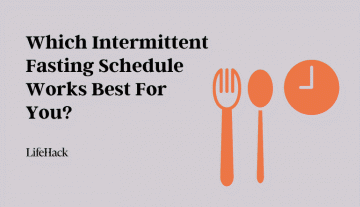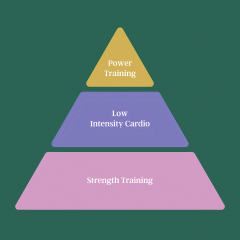Do you feel the frustration of being pulled in a million directions?
Scattered energy—the result of scrambling to do all the things, but feeling like you’re failing to be effective at any of them—ignites overwhelm both at work and at home. Maybe you’re struggling more than usual because the lines between professional and personal life have become blurred. Or maybe the extra challenges of this year are simply magnifying this battle you’d already been fighting for awhile.
Although it’s impossible to eliminate all of the stressors that make us want to pull our hair out by the roots or curl up in the cozy comfort of our beds, we can master control of our reactions to them. The key to successful stress management is simple: take a proactive approach.
These science-based stress management techniques will help you stop the hamster wheel so that you can feel more calm, no matter what life throws your way.
Mindful Morning Rituals Set the Tone for a Peaceful Day
Do you ever feel like you’re just slogging through the motions but don’t really enjoy the process of starting your day? It doesn’t have to be that way. Starting our mornings with intention sets in motion a positive ripple effect that touches every aspect of our lives. Simply taking the time to create a sense of calm and self-nurturing in the morning goes a long way toward effective stress management.
1. Focus on Feeling Good First
Instead of feeling defeated from the moment you open your eyes, plan ahead to do something that brings you joy. For this to be most effective, choose something based on what you truly like, rather than what you think you should do.
For example, you may have read that morning workouts relieve stress by increasing serotonin (that wonderful mood-boosting hormone). This is true, and if working out feels good for you, keep it up!
If you dread getting out of bed to exercise, however, it’s time for a different approach. Putting pressure on ourselves to do something we can’t stand actually diminishes our motivation and compounds our stress!
Strategy: Let go of “shoulds” and do something you know you like.
In case you’re not sure, here are some simple ideas to try:
Indulge in peaceful quiet before everyone else in the house wakes up. Savor the warmth, flavor, and aroma of your coffee. Get outside to soak up the peaceful beauty of the sunrise. Listen to uplifting music or the sounds of birds chirping. Write about what you’re grateful for or what’s going well in your life.
Mindfulness activities like these help us tune into our senses and notice our thoughts and feelings without interruption. They relieve stress by building resilience in the form of improved coping skills and decreased tendencies to take on others’ negative emotions. These abilities mean that future stressors have less impact on our happiness and physical well-being.
2. Carefully Cultivate Whom/What You Allow Into Your Mind Space
“You are the average of the five people you spend the most time with.”
This famous Jim Rohn quote was penned long before the advent of modern technologies like the internet and social media. Thanks to these advances, our five-person bubble has expanded exponentially.
We would be wise to not ignore the fact that even a “quick morning check-in” on our phones can have a powerful impact. Our mood and stress levels throughout the day often hinge on this single element.
One efficient method for controlling this impact is to create solid boundaries. Decide which individuals, events, and thoughts are deserving of the precious real estate in your brain. Refuse to allow other people’s urgencies to become your emergencies.
Strategy: Avoid email, social media, and news until after you have taken time for your morning feel-good activity.
Limit exposure to these outlets throughout the day to minimize stress levels. Identify any people, topics of conversation, or situations that trigger a stress response in you. Avoid these as much as possible, and cut out any extra noise that isn’t supporting you to feel calm.
Avoid Midday Meltdowns and Gain Control of Your Life
Have you ever noticed that many stress relief tips, especially as related to enhancing success and improving our quality of life, focus on morning and evening routines?
Darren Hardy, author of The Compound Effect, calls these habits the “bookends” of our days and states that they are the hallmarks of a successful life. While this practice in itself helps us relieve stress by putting ourselves in control of our daily beginnings and endings, there is an often undervalued merit in creating additional anchor points throughout the day to keep our energy grounded and optimized.
3. Make Space for Fun
Let’s face it– adulting can be a real drag. We have so much pent-up tension due to our focus on “shoulds,” “musts,” and “need-tos.” In all that busyness and resultant worry, we sometimes forget to let go of expectations and tune back into our wants, dreams, and physiological requirements for relief.
Strategy: Resist the urge to scold yourself for being selfish or lazy, or for not “earning” it.
That inner critic is totally normal but it’s not only a fun-killer, it will intensify your feelings of stress. Handling that voice can be a little tricky, but it’s totally doable.
These self-sabotaging thoughts, at their core, come from your subconscious mind trying to protect you from judgement, either by self or others. Simply noticing them is the first step to moving past this. Ask yourself, “Is this really true, or is this my brain speaking out of fear?” Liken it to addressing a small child: would you tell her that she is selfish or lazy for playing, taking a break, or enjoying herself? Of course not! Imagining yourself in her shoes is a simple way to practice self-compassion.
Also avoid the tendency to save fun for the end of the day after you’ve “earned it.” It’s not about keeping score, and if you try, you’re likely to lose. Happiness and satisfaction with our lives doesn’t have to be earned, no matter what we were taught.
Our brains and bodies react so positively to experiences that evoke joy, comfort, connection, and play that the effects are measurable. In fact, simply engaging in enjoyable activities has been shown to reduce levels of cortisol (stress hormone).
4. Eat to Beat Stress
A fuel-starved brain is a stressed brain. When our stomachs are running on empty our blood sugar levels dip, flatlining our energy. This reduces patience levels, too.
If you have ever experienced a child, or even your spouse or a colleague, fuming at you like a ticking stress bomb, you may have witnessed what some call “the hangries” (hunger + angry). People are more likely to panic or blow up when functioning at this level. The part of our brains that makes educated, logical, insightful decisions is literally shut off in this situation.
It’s common to only notice we’re hungry or remember to eat once we’ve already reached our edge. The problem, as mentioned, is that our decision-making skills at this point are nil. We’re likely to grab whatever will most quickly reassure our brain that it’s not starving to death, and since one of our brain’s top fuel sources is glucose, we naturally crave simple carbs and sweets to get that sugar hit fast. This adds to stress a couple hours later, when our energy crashes. It creates even more stress by causing us to waste a lot of mental energy beating ourselves up over choices that make us feel crappy.
Strategy: Planning ahead is essential, but it doesn’t need to be complicated.
Batch prep staple foods– like pasta, quinoa, and various fruits and veggies– for putting together quick meals and snacks on the fly. Keep nourishing nibbles on standby—in your car, desk, fridge—for convenient and quick recovery from the “hangries.”
Include foods high in magnesium, which are proven to work to manage stress and create a tranquil mood. Magnesium-rich oatmeal and brown rice are easy to prepare in advance. Load salads or sandwiches with leafy greens like romaine, red leaf lettuce, or spinach. Snack on bananas, yogurt, broccoli, or Brazil nuts for a quick dose of this stress relieving mineral.
Unwind and Decompress to Release Tension and Stress
At the end of a chaotic day, it’s natural to want to set our troubles aside and just tune out for a bit. The hard truth is, many of our nighttime relaxation go-tos don’t actually get us the results we’re trying to achieve. At best, they provide short-lived surface-level relief… and at worst, they actually aggravate the stress we’re attempting to escape.
5. Break Free From the Nightcap Trap
Alcohol is commonly used as a method for winding down at the end of a stressful day. In fact, about one-fifth of all American adults use alcohol to help them relax enough to sleep at night. The effects of adequate quality sleep on stress relief are well documented, so it makes sense that we’d equate the combination of these benefits and alcohol’s sedative effects with lowered stress levels.
Unfortunately the opposite is true, causing this approach to backfire. The sedative effects of alcohol naturally wear off after just a few hours, which leads to what’s called the Metabolic Rebound Effect, a phenomenon which directly interrupts restorative sleep cycles. One proven consequence of sleep disruption is increased stress responsivity, bringing this cycle full-circle.
Strategy: Shift from escapist stress relief methods to more intentional ones that contribute to feeling relaxed, connected, and balanced.
Using alcohol-free stress relievers will help you feel truly nurtured and support your restorative sleep. Here are some ideas to try:
Pull Your Scattered Energy Together!
With these five stress management techniques, you can finally say goodbye to sluggish mornings and frazzled days, and consciously create the life you’ve always known you could live.
Big improvements to our stress and overall well-being are possible with relatively small adjustments to our mindsets and behaviors. Tune into self awareness, commit to releasing the habits that keep you planted in complacency, and shift into actions that support you to live your purpose, on purpose.
More Stress Management Tips
Featured photo credit: Tsunami Green via unsplash.com





























































